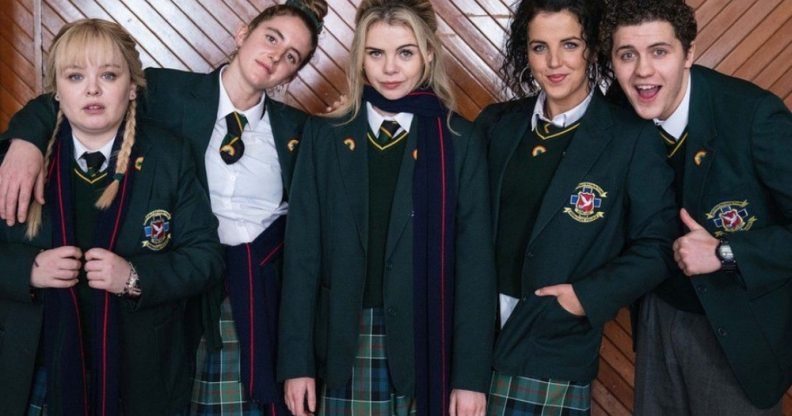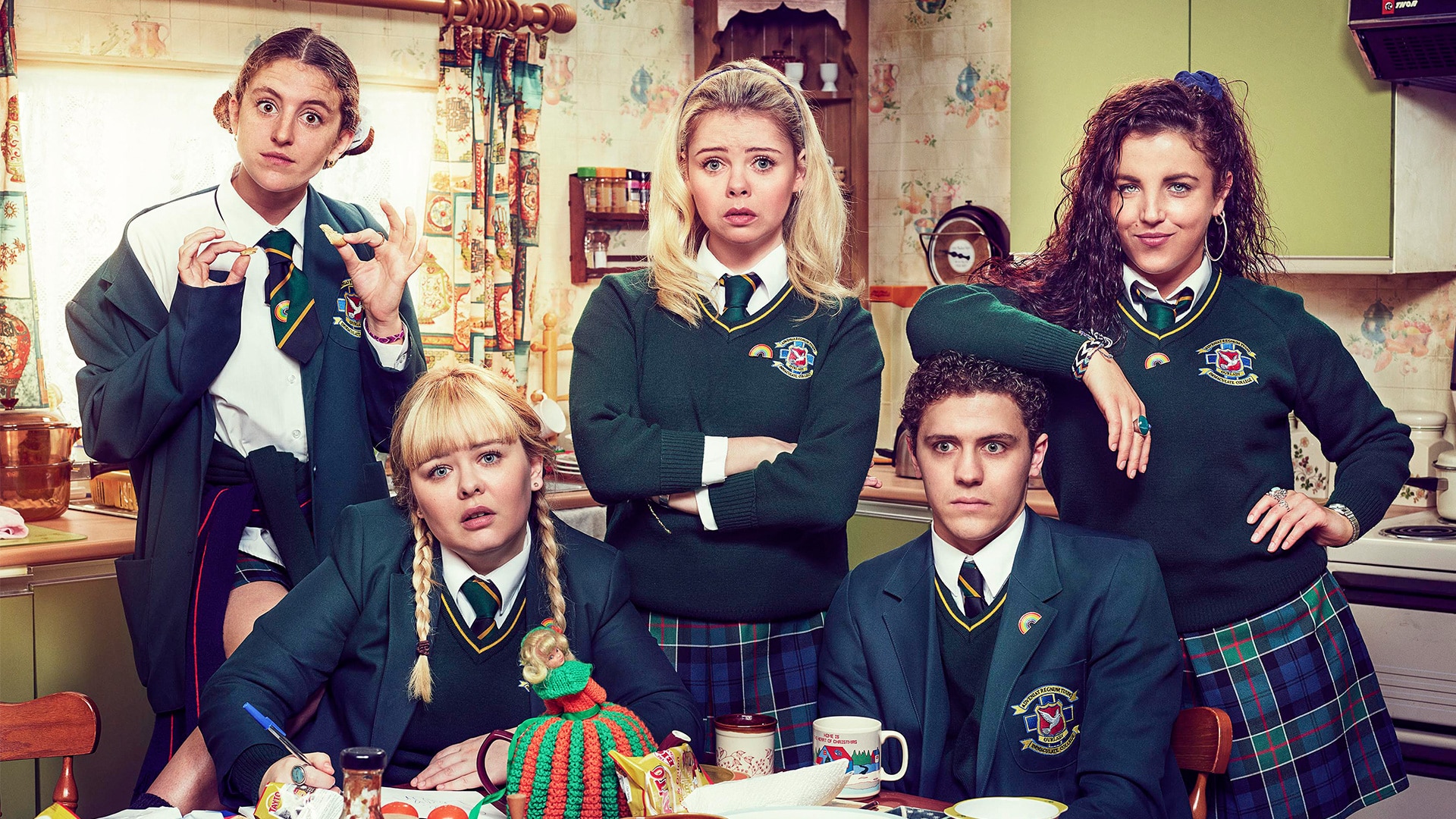Derry Girls’ powerful finale should inspire us all to educate ourselves on The Troubles

The cast of Derry Girls. (Channel 4)
It’s hard to overstate just how important and monumental the finale of Derry Girls felt.
The much-praised Channel 4 sitcom bowed out after three seasons on Wednesday night (18 May) with an hour-long special set in 1998.
The girls (and their English boy) are all turning 18 and are preparing to vote for or against the Good Friday Agreement. In its final hour, Derry Girls shows Northern Ireland on the cusp of great change – but change isn’t always easy to accept.
Erin (Saoirse Monica-Jackson) grapples with whether it’s right to release paramilitary soldiers who may have been responsible for murder, while Michelle (Jamie-Lee O’Donnell) expresses hope that her brother – who we learn killed a man – could be released under the deal.
At the end of the day, Derry Girls is a comedy, and there are plenty of funny moments thrown into the mix too. Aunt Sarah (Kathy Kiera Clarke), in her attempt to explain the complexities of the agreement, says you can be “British, Irish, or bi”. We also get a hilarious (and frankly, very Irish) set-up when Erin learns she and her cousin Orla have to share their joint birthday party with a group of children making their first communion.
Derry Girls shows Northern Ireland as it steps into the future
Those moments of humour are much-needed, but the Derry Girls finale shines at its brightest when it tackles the painful realities of the Troubles and the fight for peace head on. Some of the episode’s best moments come towards the end, when Erin speaks about her fears of growing up and moving on.
In a deeply poignant moment, Derry Girls shows each of its characters stepping into the polling booth to vote in favour of the Good Friday Agreement. In that moment, they decide to take a step forward into the future – we see them asking for a better life for themselves and for future generations, one that’s free from violence.

The cast of Derry Girls. (Channel 4)
The episode also gives us a brief and much-needed overview of the Troubles. In one of its most heart-wrenching moments, Derry Girls reminds us about the horrors of Bloody Sunday, which saw the British Army shoot 26 unarmed civilians at a civil rights protest. 13 people were murdered on Bloody Sunday, while another man died months later from his injuries.
That context is vital – it serves as a powerful reminder of what was at stake for the people of Northern Ireland when they decided to vote in favour of the Good Friday Agreement. More than 3,500 people were killed during the Troubles. That legacy of violence and devastation hangs over the final episode of Derry Girls.
The UK government has done its best to ignore the history and complexities of Northern Ireland
It’s also important that Derry Girls explores the past because the past is so often forgotten. For too long, the discourse in the UK surrounding Northern Ireland has been reductive and offensive. British politicians have done their best to decontextualise the conflict so they could push Brexit through, and the fallout is continuing to this day. Right now, the UK government is threatening to breach international law and unilaterally alter the Northern Irish protocol.
The UK government has claimed that it’s trying to protect the Good Friday Agreement, but it’s hard to take them seriously when they keep undermining it.
The truth is that most people outside of Northern Ireland know very little about the Troubles. That’s because they weren’t taught about it in school, but it’s also because they’ve never bothered to put in the effort to find out.
We can only hope that Derry Girls will help everyone – and yes, that includes Cabinet ministers – to learn more about Northern Ireland.
It’s a real place full of real people, and it deserves to be seen as more than just a political punching bag in the ongoing Brexit fallout.
The warm, funny, witty characters that populate Derry Girls are proof of that.

